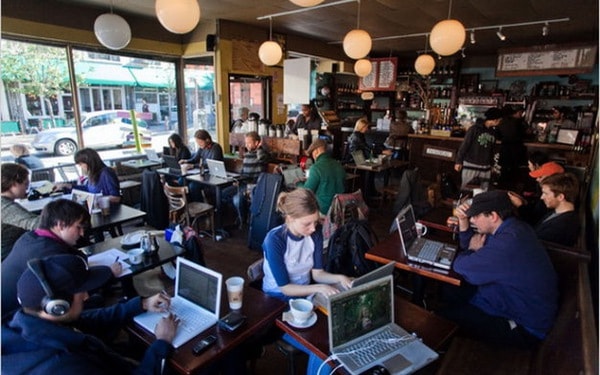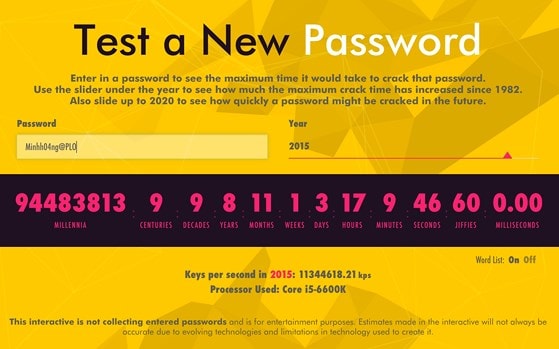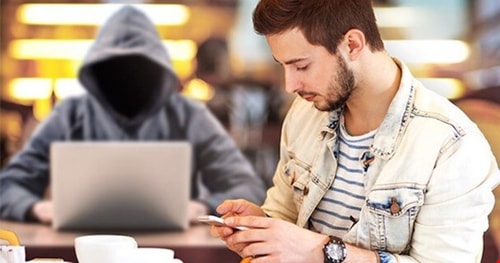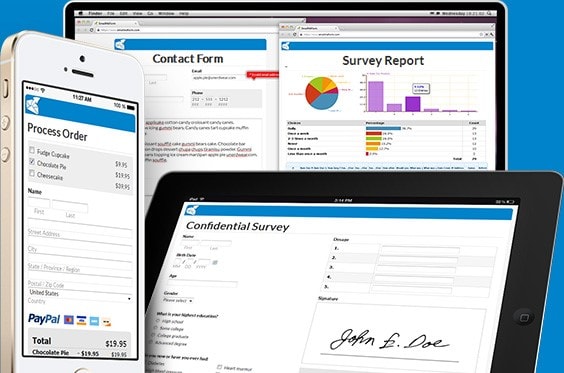9 habits to quit immediately when using the Internet
(Baonghean.vn) - Scammers often use extremely sophisticated tricks to target users' Internet usage habits in order to deceive and steal accounts... Therefore, users need to be vigilant and should give up the following habits when accessing the Internet.
1. Connecting to public WiFi
 |
Wi-Fi networks themselves pose potential dangers. Because anyone, any device can access them at the same time. As long as we send or receive information through a public Wi-Fi connection, they are at risk of being controlled by a third party.
Therefore, it is necessary to minimize the use of public Wi-Fi in crowded places. Only use it to meet basic entertainment needs such as playing games, listening to music. If you have to access websites that require personal passwords or use work email, the optimal solution is to use mobile network data.
2. Use simple passwords
 |
There are so many things to remember in modern life, so users tend to set simple, easy-to-remember passwords and apply them many times. However, the level of hackers is increasingly high and unpredictable, easy-to-guess passwords can become easy prey for them.
To protect yourself, set up a complex password, using a combination of uppercase and lowercase letters, numbers, and symbols. Each website should have a unique password. In addition, we should change passwords periodically every 3 months.
3. Using the same password for multiple accounts
 |
Similarly, many users often set the same password for many different accounts to make it easier to remember, but this is a loophole for hackers to find out your important accounts. Therefore, you should not use one password for many different accounts.
The most typical example is not long ago when billions of Yahoo accounts were hacked and exposed, about 3 billion people were affected because they used the same password. Therefore, closing old unused accounts is also very important.
4. Send personal information via email
Email has been one of the most popular communication methods for more than two decades. People often choose email because of its convenience and professionalism when they want to discuss work as well as private secrets without thinking about the consequences later.
Because exchanging information is a combination of sending and receiving actions. This requires a secure network connection from both sides. Therefore, to be careful, experts advise users not to disclose any confidential information via email if they do not want it to be leaked out.
Besides, we can use email services from reputable security companies if really necessary.
5. Fill out the online forms
 |
Most websites today require users to provide basic personal information such as name, age, gender… even email address to gain access to log in. Most of them are safe, but some of them can be tricks to serve advertising purposes later.
Be very careful with the websites we use, read the Privacy Policy carefully before clicking the Sign Up button.
6. Clicking on strange links
Hackers often use the trick of sending fake winning emails, and inserting malicious links and files to lure users into downloading. When clicked, the browser will automatically redirect to malicious websites with interfaces similar to Facebook, Gmail... to steal accounts.
In addition, users should not click on articles with clickbait titles on Facebook to avoid being hijacked by others.
7. Skip the privacy policy review step
 |
Every web developer has a different privacy policy depending on the laws of each country and territory. Most users never read this policy. They do not know that they may have agreed to the developer's carefully inserted disadvantageous terms.
Make it a habit to review sensitive terms, even just skim the privacy policy, before hitting the agree button.
8. Sharing too much information on social networks
 |
It's fun to share pictures of your crazy adventures or blog about what you're doing and what you're thinking, but the information you share online can easily tell others a lot more about you than you realize.
For example, if you post a photo of yourself traveling with your family, it could let anyone who is following you know that no one is home at that time and could be an opportunity for a bad guy to break into your house.
9. Providing accounts to others
 |
Many people have a habit of sharing their Netflix login details with close friends and family, but this is not a good idea in any situation. Therefore, if you need to share your personal login details with anyone, you should change them immediately.

